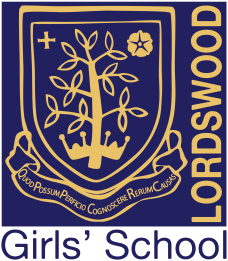Types of Need and What That Could Include
Cognition and Learning
Students who work at a slower pace than their peers, even with appropriate differentiation, they may struggle with:
- Reading and spelling
- Learning new information and concepts
- Working with numbers
- Working memory
- Concentration
Learning difficulties cover a wide range of needs including moderate learning difficulties (MLD), severe learning difficulties (SLD) and profound and multiple learning difficulties (PMLD).
Students with specific learning difficulties (SpLD) that affects one or more specific aspects of learning e.g. dyslexia, dyspraxia and dyscalcula.
Students may also present with difficulties that do not have a specific title.
Examples of support in our school
- Dedicated and caring staff who value all students regardless of ability
- Quality First teaching with appropriate differentiation (including best SEN practice)
- Smaller teaching groups in some subjects
- Some/targeted Teaching Assistant intervention in and out of lessons
- Personalised pupil profiles for students on the additional needs register
- Visual aids to support key vocabulary, concepts and themes.
- Access to homework support clubs
- Accelerated Reader Programme whole school through the library and literacy lessons
- Literacy mats and boxes in all rooms
- DEAR (Drop Everything and Read)
- Access to assessment for identification of significant needs.
- Targeted interventions in small groups with a focus on a range of needs including literacy, comprehension and writing for example toe by toe or progress units/beat dyslexia as appropriate.
- Support/help from external agencies as appropriate e.g. Educational Psychologist, Pupil and School Support involvement (PSS)
Communication and Interaction
Students with Speech, Language and Communication Needs. This could include:
- Understanding language and what is being said to them
- Using language
- Understanding how to communicate socially with other people and social rules of communication
- Conditions include students with Autistic Spectrum Disorder (ASD), including Asperger’s Syndrome and Autism, speech sound disorders/delay and stammering
Examples of support in our school
- Quality First teaching with appropriate differentiation
- Visual aids to support key vocabulary, concepts and themes
- Access to homework clubs
- Accelerated Reader Programme throughout the school
- Review time programme that encourages social interaction and communication through groups
- Access to assessment for identification of significant needs (as appropriate)
- Personalised pupil profiles for students on the additional needs register
- Social interaction and communication groups eg FRIEND programme
- Breakfast Club – preparation for the day / organisation / pre-pared for any changes
- Communication and Autism (CAT) team involvement where needed
- School can support with referrals to the Speech and Language Service
Social, Emotional and Mental Health Difficulties
Students may experience a wide range of social and emotional difficulties which manifest themselves in many ways. This includes young people who experience short but significant periods of high anxiety, stress, distress or anger that affects their education. It also includes young people who have a range of longer-term recognised mental health conditions.
For both groups, issues could include:
- Forming and maintaining relationships
- Bereavement
- Attitudes to attainment
- Attendance
- Self-esteem
- Life outside school
Examples of support in our school
- FRIENDS programme– supporting anxiety
- Breakfast club access
- Wide range of other extra-curricular clubs during lunchtimes and after school
- School Nurse referral
- Personalised pupil profiles for students on the additional needs register
- Child Adolescent and Mental Health (CAMHS) referral / Forward Thinking Birmingham referral
- Place 2 Be or Place 2 Talk referral
- Pastoral support
- Mentoring
- Year 6 into Year 7 transition day and induction week activities
- Post 16 and Post 18 support with college applications and career paths (CIAEG)
- SRE and PSHEE themed days that focus on emotion and mental health
- Drawing and talking therapy
- Sign posting to online support eg. Kooth
Sensory and/or Physical Needs
Students may require Special Educational provision for a disability in order to access the full curriculum, this could include:
- Visual Impairment (VI)
- Hearing Impairment (HI)
- Multi-Sensory Impairment (MSI) (combination of visual and hearing difficulties)
- Gross motor co-ordination
- Physical disability (PD)
Examples of support in our school
- Dedicated and caring staff who value all students regardless of ability
- Quality First teaching with appropriate differentiation
- Visual aids to support key vocabulary, concepts and themes.
- School adheres to guidelines on physical access.
- Access to homework clubs.
- Accelerated Reader Programme Whole School
- DEAR (Drop Everything and Read)
- Access to assessment for identification of significant needs as appropriate
- Personalised pupil profiles for students on the additional needs register
- Appropriate outside agency (e.g. SS team) involvement including some 1-1 support from advisory teachers and targeted support from School Nurse as required
- Specialised equipment and materials such as writing slope, hearing aid replacements, radio aids, laptops
- Access to assistive software
- Support from Teaching Assistants in some lessons where safety may pose a risk in practical lessons e.g. science, PE etc.
